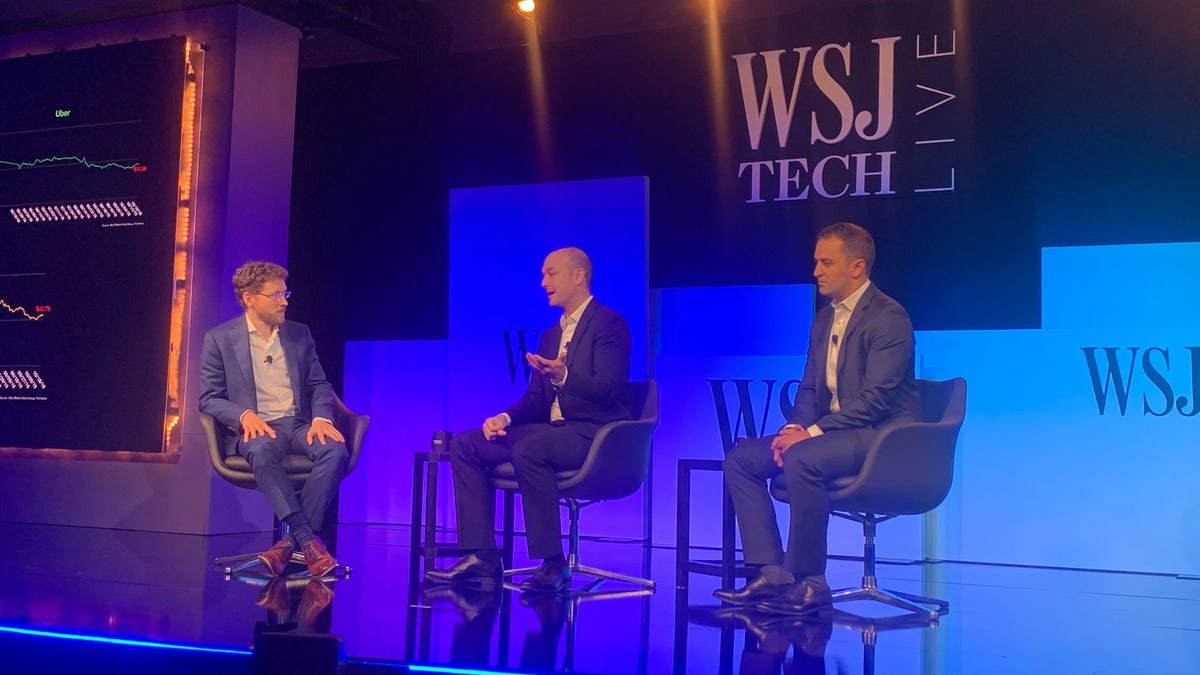Lyft says it's on the path to profitability, despite Wall Street woes
After the ride-hailing company's co-founders said they're expecting profitability by the end of 2021, both Lyft's and Uber's shares jumped.

At the Wall Street Journal's Tech Live conference, Lyft CEO Logan Green (middle) and President John Zimmer (right) talk about going public.
Lyft has experienced a rough first few months on Wall Street. But the company's co-founders still seem optimistic. Lyft CEO Logan Green said Tuesday that the company plans to reach profitability one year earlier than analysts had previously forecast.
"We've never laid out our path for profitability and we know that's a question on a lot of investors' minds," Green said at the Wall Street Journal's annual Tech Live conference in Laguna Beach, California. "We're going to hit this target [of profitability] in Q4 for 2021."
Even though that's still two years off, both Lyft's and Uber's shares jumped after the announcement. Lyft's shares rose by as much as 6.6% to $43.56 and Uber's climbed 3.1% to $32.37. Lyft's forecast for profitability is based on adjusted earnings before interest, taxes, depreciation and amortization.
Lyft debuted on Wall Street on March 29 with a strong first day of trading and its share price rising nearly 9%. But it's struggled ever since. Shares have faltered, two sets of shareholders sued the company for misrepresenting the strength of its business and its chief operating officer stepped down. Uber has experienced an equally hard time on Wall Street since its debut in May.
As Uber and Lyft have struggled as public companies, some analysts have questioned whether ride-hailing is a viable business model. But Green said Tuesday that the issue is more about going from being a venture-backed private company to a publicly traded company on Wall Street.
"There's been a major shift from investors valuing growth to going to value stocks," Green said. "That shift has had very broad implications that I think has impacted us."

